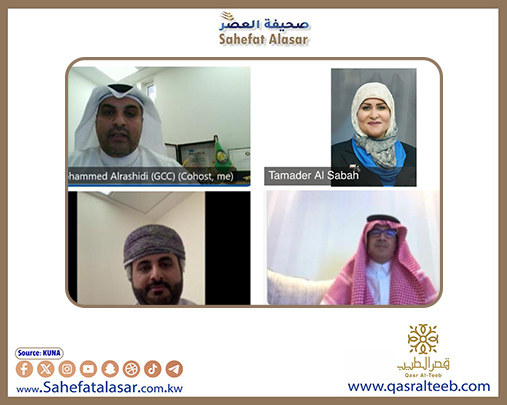


The Ministry of Oil announced on Wednesday that the Gulf Cooperation Council (GCC) countries have successfully completed a comprehensive update of their joint media strategy for the oil and energy sector—a move that reflects their deep understanding of the importance of specialized media in supporting energy policies.
In a statement to the Kuwait News Agency (KUNA) on the occasion of the GCC Petroleum Cooperation Committee’s meeting held on Tuesday, Sheikha Tamadhir Khaled Al-Ahmad Al-Jaber Al-Sabah, Director of the Public Relations and Petroleum Media Department at the ministry, stated that the joint media strategy aims to deliver a unified Gulf narrative capable of influencing regional and international public opinion while keeping pace with structural changes in global energy markets.
Sheikha Tamadhir Al-Sabah added that the GCC’s updated petroleum media strategy "comes at a critical time as the world undergoes radical shifts in energy production and consumption concepts." She explained that media discourse in this field is no longer measured solely by its promotional capacity but also by its contribution to raising public awareness and shaping attitudes toward pivotal issues such as energy security, sustainability, and the transition to alternative sources.
She noted that the GCC’s Petroleum Media Strategy Task Force had made significant efforts in developing the strategy’s framework and updating it to align with global developments while exploring ways to activate the Gulf media strategy in the energy sector.
Key executive provisions supporting Gulf media integration in this vital sector were reviewed, ensuring alignment with regional and international energy market developments and challenges.
The task force successfully established a timeline for implementing the updated strategy and set precise performance indicators to measure progress in achieving its objectives. This reflects a clear picture of the GCC’s energy policies and highlights its role in reinforcing the security and stability of global oil markets.
Sheikha Tamadhir Al-Sabah emphasized that the new phase requires Gulf media to move beyond traditional approaches and adopt a more integrated, professional system based on transparency, technical expertise, and objective analysis.
The updated media strategy aims to strengthen the Gulf’s presence on international platforms and reshape media messaging in line with future priorities—especially amid growing climate-related pressures, increasing environmental discourse, and the widening gap in understanding between producers and consumers on energy issues.
The Director stressed that media has now become a decisive factor in explaining and defending energy policies while contributing to shaping the transition toward a more balanced energy mix.
The GCC’s updated media strategy includes maximizing artificial intelligence and digital transformation tools to develop energy-related media content, focusing on building a cohesive narrative capable of countering anti-oil industry rhetoric.
She highlighted the importance of establishing effective communication networks among GCC ministries, oil companies, and media entities to unify efforts, exchange expertise, and maximize regional and international impact.
Sheikha Tamadhir Al-Sabah stated that the next phase demands a professional Gulf petroleum media that operates with a clear vision, rooted in the GCC’s shared national interests, to strongly support energy policies and serve as a bridge for global communication in line with evolving language, trends, and standards.
This strategy follows the decision of the 29th meeting of the GCC Petroleum Cooperation Committee, held in Kuwait in October 2010, mandating the development of a petroleum media strategy. The effort was coordinated with the GCC Petroleum Strategy Committee, with the GCC’s Petroleum Media Experts Committee tasked with drafting the strategy. Kuwait subsequently updated the strategy and its implementation mechanisms to align with developments in energy markets.
The GCC has made significant progress in building a common foundation for energy media coordination, with Kuwait playing a pioneering role since presenting a working paper at the 2008 Petroleum Cooperation Committee meeting in Doha.
The paper highlighted petroleum media as a strategic tool capable of guiding public opinion and countering misleading stereotypes promoted against the region and oil producers in general.
